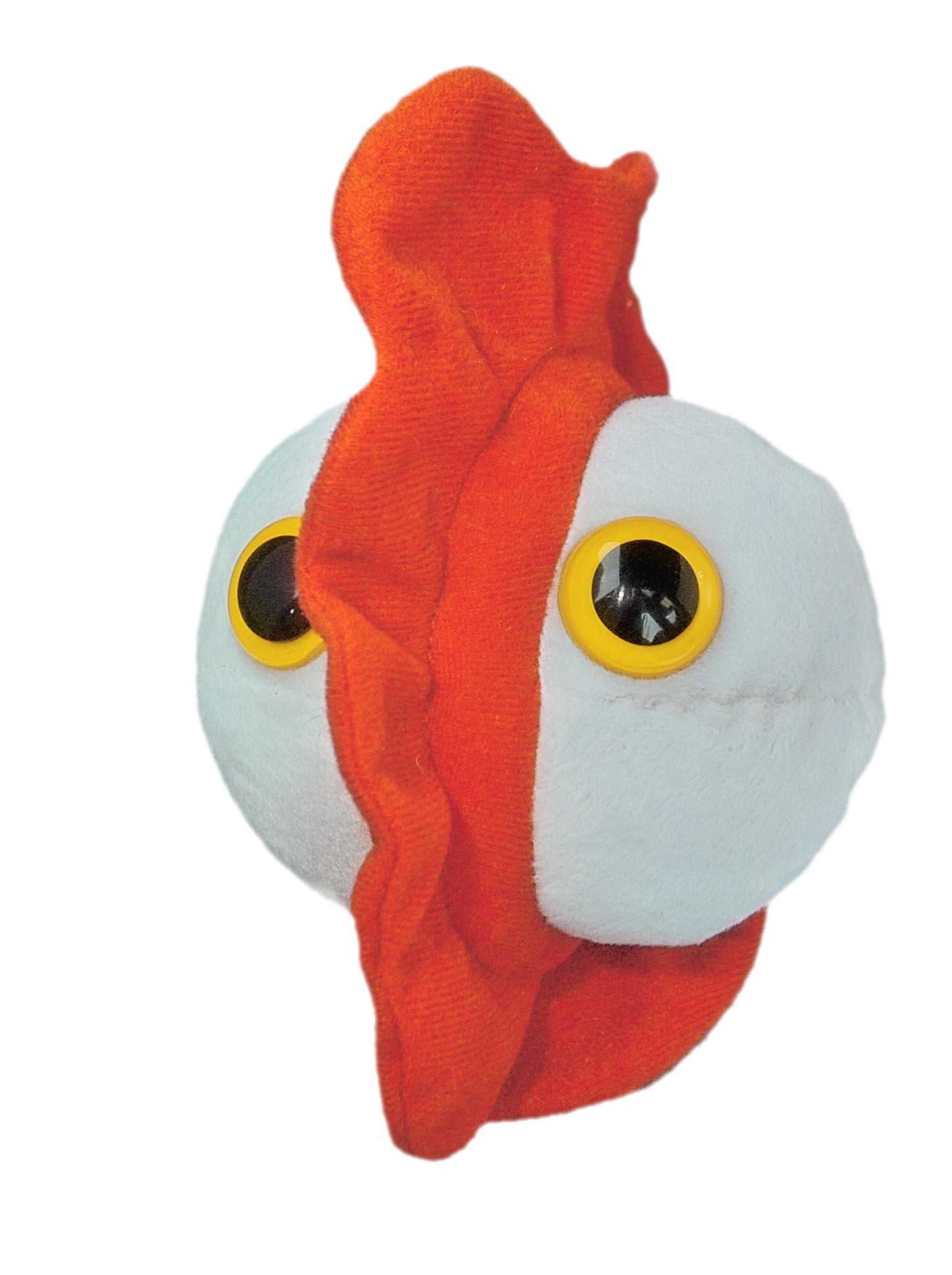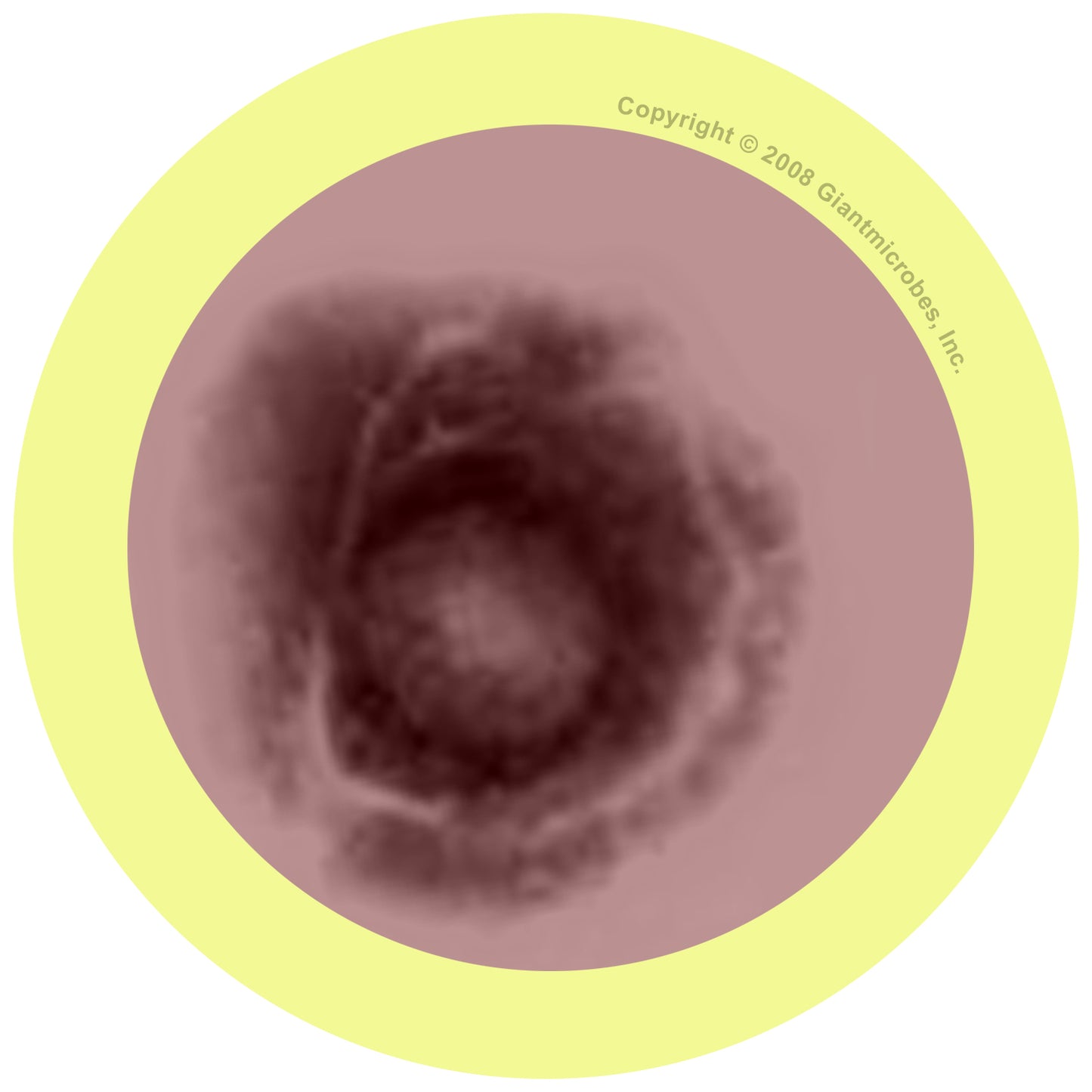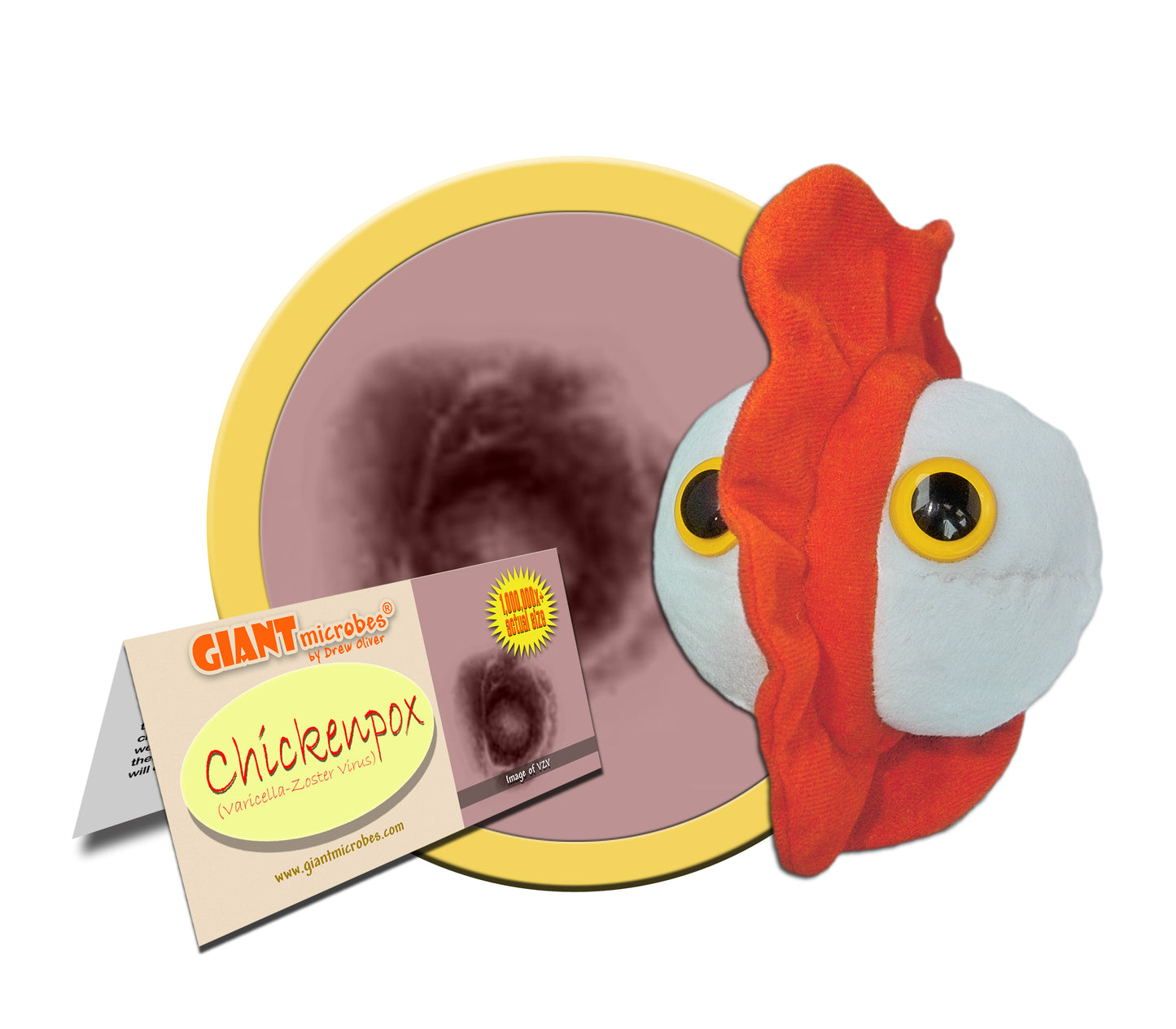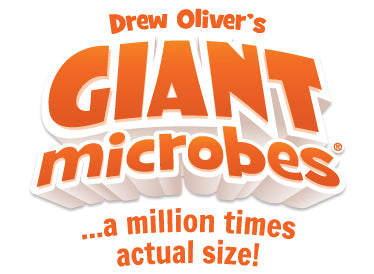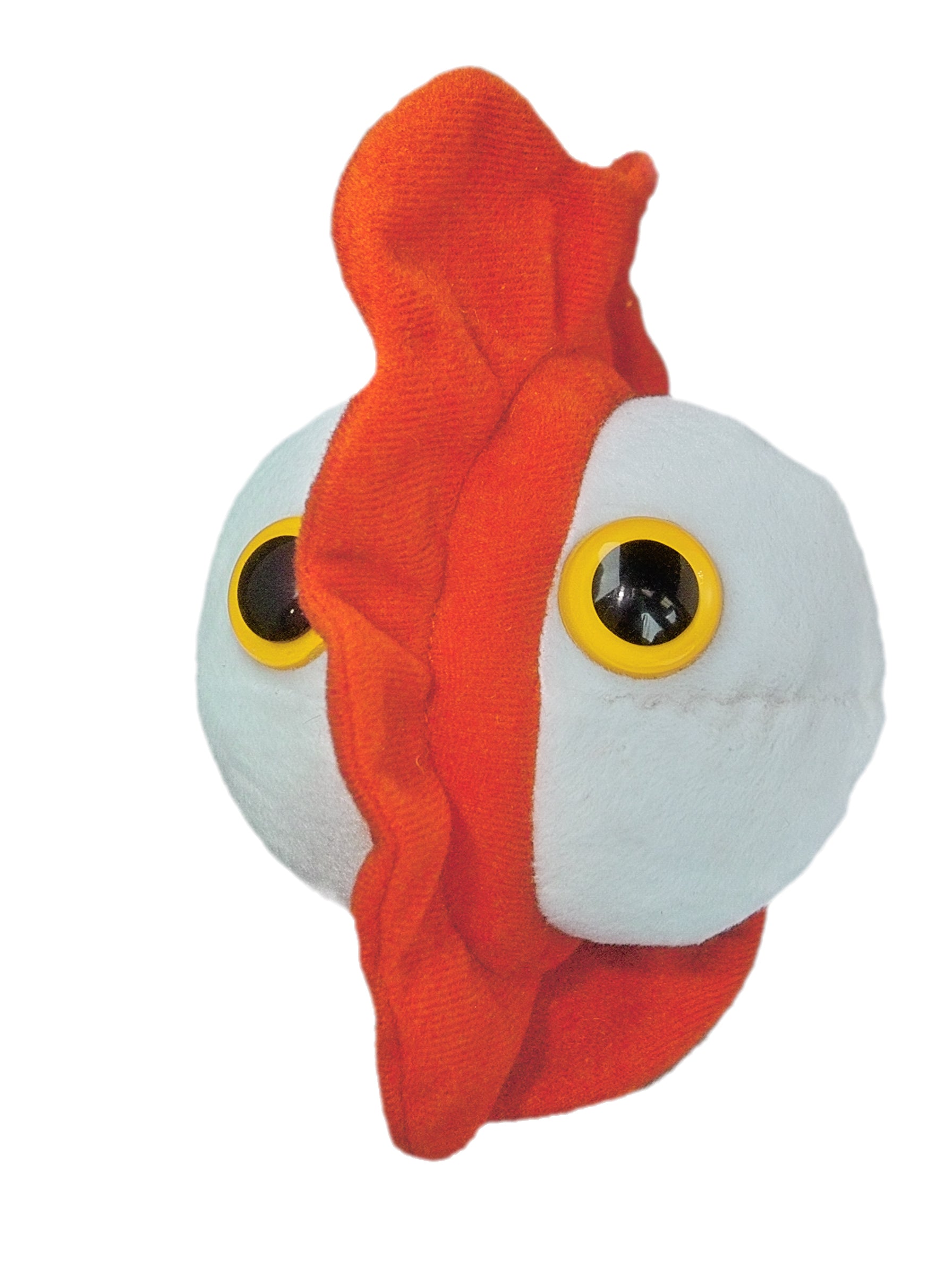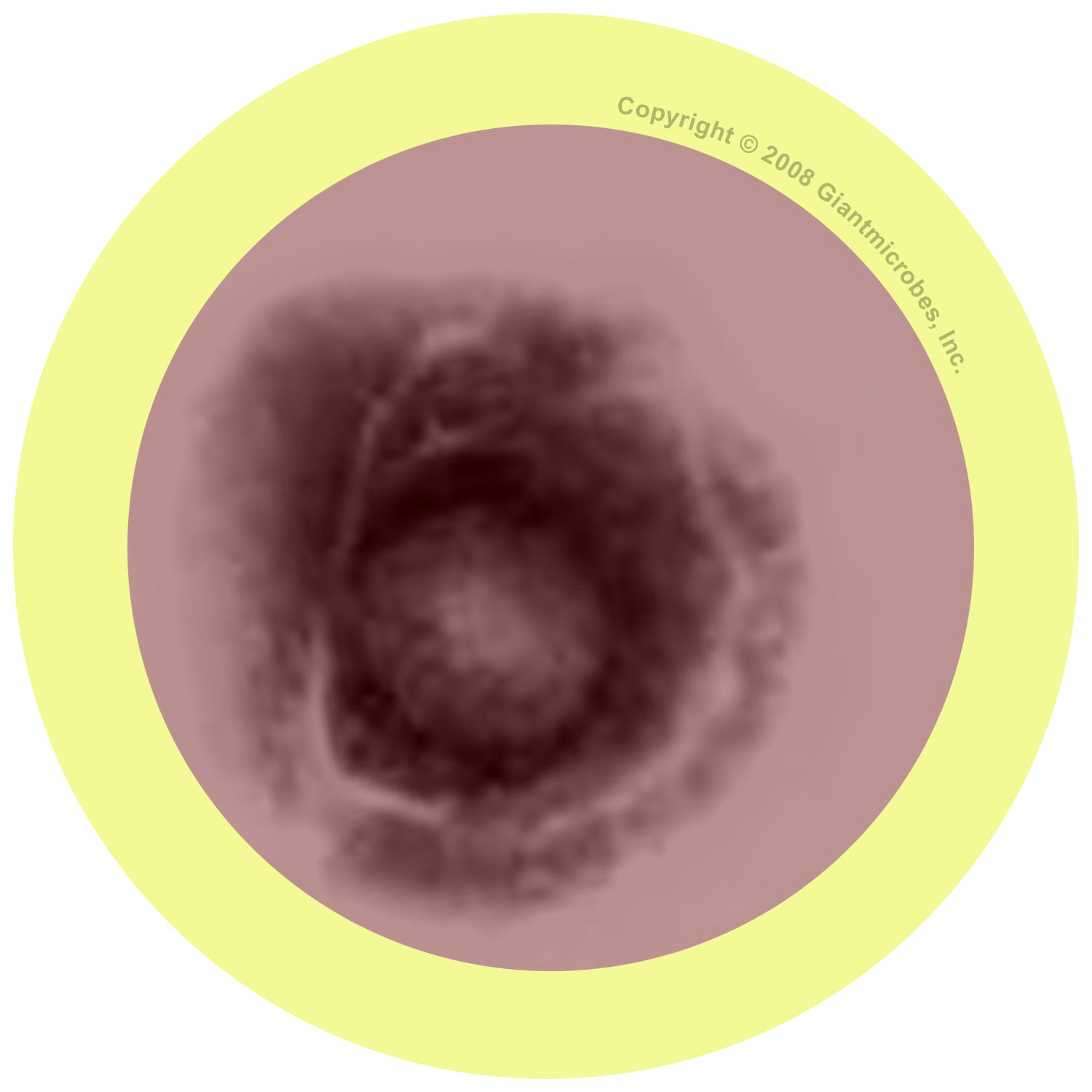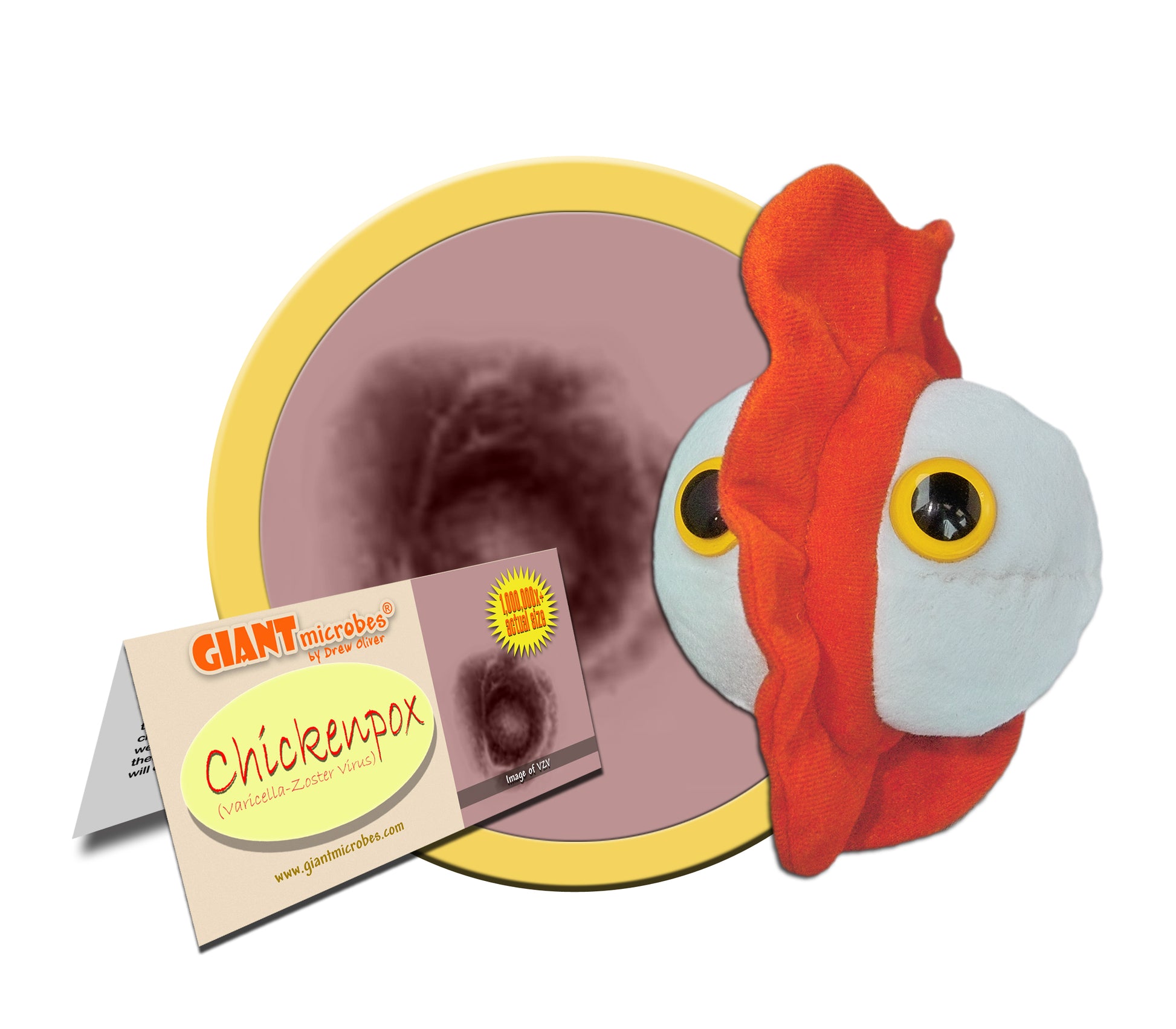Chicken Pox (Varicella-Zoster Virus)
Chicken Pox (Varicella-Zoster Virus)
Couldn't load pickup availability
- Great teaching tool for pediatricians, nurses -- and Doctor Mom
- Good gift to cheer someone up after their vaccination
All About Chickenpox (Varicella-Zoster Virus)
FACTS: Getting chickenpox was once a childhood rite of passage – nearly everyone contracted the disease at some point in their youth. Indeed, some parents were known to have “pox parties” to deliberately infect their children at a young age when the symptoms tend to be mild. But the days of playing chicken with the scratch-inducing virus are rapidly coming to a close: the aggressive introduction of an effective vaccine is now making chickenpox infections as rare as hen’s teeth.
What is chickenpox? Technically speaking, it is an infection with the Varicella-Zoster virus (which is a member of the Herpesviridae family of viruses, and a cousin of herpes and mononucleosis). More generally, it is a highly contagious, though generally non-serious, illness usually spread through direct contact (or coughing and sneezing) that produces hundreds of itchy-red spots all over the skin.
Superficially, these spots resemble the marks left by smallpox, which probably accounts for the name “chickenpox” – a weak-version of the far more serious disease – though other etymological theories spring from the resemblance of the marks to chicken pecks or chick peas and the phonetic similarity of the Old English word giccan, meaning “to itch.”
In any case, wherever the word came from, with a vaccine around, the sky is falling on the Varicella-Zoster virus. But don’t count all your chickens before they hatch: because the vaccine is made from a weakened form of the live virus, if you’re no longer a spring chicken, there is still a chance that the vaccine-virus, like good ol’ chickenpox, will come home to roost one day in the form of shingles.
Copyright © 2014 Giantmicrobes, Inc. All Rights Reserved.
NAME Varicella-zoster virus
ACTUAL SIZE 150-200 nm in diameter, about 10 times larger than the common cold virus!
WHERE IT LIVES Lives in top layer skin cells (chickenpox) and dormantly lives in sensory nerve cells (when active, causes shingles).
SYSTEM The nervous system and the integumentary system (skin).
COMMONALITY In 2010, 90% of children under three years old received the vaccine for chickenpox.
Roughly 350,000 cases of chickenpox occur in the U.S. annually.
SYMPTOMS Fever and irresistible itchy rashes, followed by the formation of gross red spots/fluid-filled blisters.
CURE Thankfully, a vaccine is available which has been shown to be 70-90% effective. Treatment of chickenpox includes use of pain medications and topical treatments for the itchy rash, blisters, and scabs. Phew!
CAUTION! Taking aspirin while having chickenpox has been shown to increase risk of contracting Reye's syndrome, which causes liver and brain damage.
DEADLINESS/SEVERITY Painful and itchy rashes last on average 12 days.
Only those with weakened immune systems are at risk of death. Six deaths were caused by the chickenpox virus in 2007.
INFECTIOUSNESS Chickenpox spreads easily. Direct contact with a chickenpox blister or the saliva from an infected person can spread chickenpox to other people. So students, tell your teacher to get your poor classmate our microbe for company while he or she misses a few classes.
Incubation period: 10-21 days after exposure, symptoms of chickenpox appear.
HISTORY In 1767, English doctor William Heberden first distinguished chickenpox from smallpox.
Michiaki Takahashi, MD, created the first vaccination in 1974.
In 1995, a vaccination for varicella became available in the U.S., dropping the number of cases from 4 million to under 350,000 in the U.S. annually.
FASCINATING FACTS In most cases, getting chickenpox once means you will not get it again.
10-20% of people who have had chickenpox will contract shingles. Only those who have had chickenpox can contract shingles; both diseases stem from the Varicella-zoster virus.
